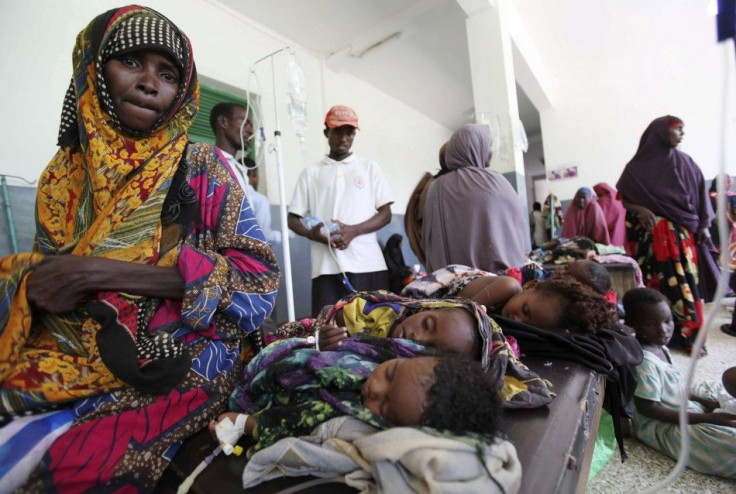Eyewitness Accounts of Horrors of Life in Somalia

Human Rights Watch (HRW) has documented the abuses carried out by government soldiers as well as militant groups in Somalia, which is suffering through the world’s worst humanitarian crisis in decades.
A confluence of civil war, famine, drought and brutality by rival forces seeking power in the country has created a nightmarish existence for the Somali people, millions of whom face starvation.
The following are excerpts of eyewitness accounts to the suffering in Somalia, as recorded by HRW researchers:
“Both sides don’t spare the public. Sometimes it happens that the person you had breakfast with in the morning is killed by mortars in the afternoon. [The Islamic militant group] Al-Shabaab is fond of firing weapons from residential areas, knowing very clearly that the other side is going to return fire to the same place. Then al-Shabaab runs away. And the TFG [Somali Transitional Federal Government] and AMISOM [African Union peacekeeping forces] don’t care whether there are civilians or not in the places they fire on. You don’t know whom to blame -- do you blame al-Shabaab for hiding among the public, or the government for hitting back at the same place from where they were fired on?”
--a 37-year-old woman from Mogadishu who fled shelling.
“They called me themselves and said, ‘We are in possession of your husband, who is also an infidel, isn’t he?’ I said, ‘My husband is a Muslim.’ They said ‘He is an infidel and we will slaughter him.’ Two days after he was arrested they called me again. They told me we were infidels, our children were infidels, and to beware…. Their threats are still ringing in my ears.”
-a 40-year-old woman from Mogadishu whose husband was taken into custody by al-Shabaab.
“All our animals died. There are no camels anymore; no goats, no cattle, and even people started dying. There was no food because al-Shabaab would not allow the aid agencies to bring food. They say, ‘We don’t want the food of disbelievers.’”
- young man who fled an al-Shabaab-controlled area.
“Three days ago I left Dhobley [a town in southern Somalia] by van. We were robbed on the way. There were about 40 of us, and there were 10 men who came with their rifles and put them on our necks, and another 10 in the bush. Men and women were separated and we were told to give them mobile phones, money, whatever we had. Some of the girls were raped – about six of them. For me, they just put a gun to my neck and took my money and mobile phone, but I am an old person so I was not subjected to rape.”
-elderly woman from Dhobley who was attacked on the way to Dadaab (refugee center in northeastern Kenya)
“I myself was arrested and robbed by [Ahlu Sunna Wal Jama’a] officials. I was sitting somewhere in the town center in BulaHawo, and an explosion took place. A TFG government vehicle was destroyed by a mine. Immediately, the soldiers [from Ahlu Sunna Wal Jama’a] entered the town and started shooting carelessly. All of us were rounded up and taken to the police station. While I was being taken to the cell, the soldiers robbed my cell phone and 7,000 [Kenyan shillings]. Five hundred of us were arrested. We were kept in a compound. Some were in a cell. Women were also arrested and were held separately. Some were carrying small children. The women and children were released the same day, but the men stayed in detention for two days. After we were released, there was a public rally by the TFG government. They told us to do one of three things: either go to Kenya or Ethiopia, or go join those al-Shabaab people. [A district official] said “If something happens again here, you will be held responsible and we will kill you.” The day after the public rally we saw there was going to be no life there. We decided to take off.
--a middle-aged man who was arbitrarily detained by the TFG-aligned militia Ahlu Sunna Waj-Jama’a.
© Copyright IBTimes 2024. All rights reserved.











